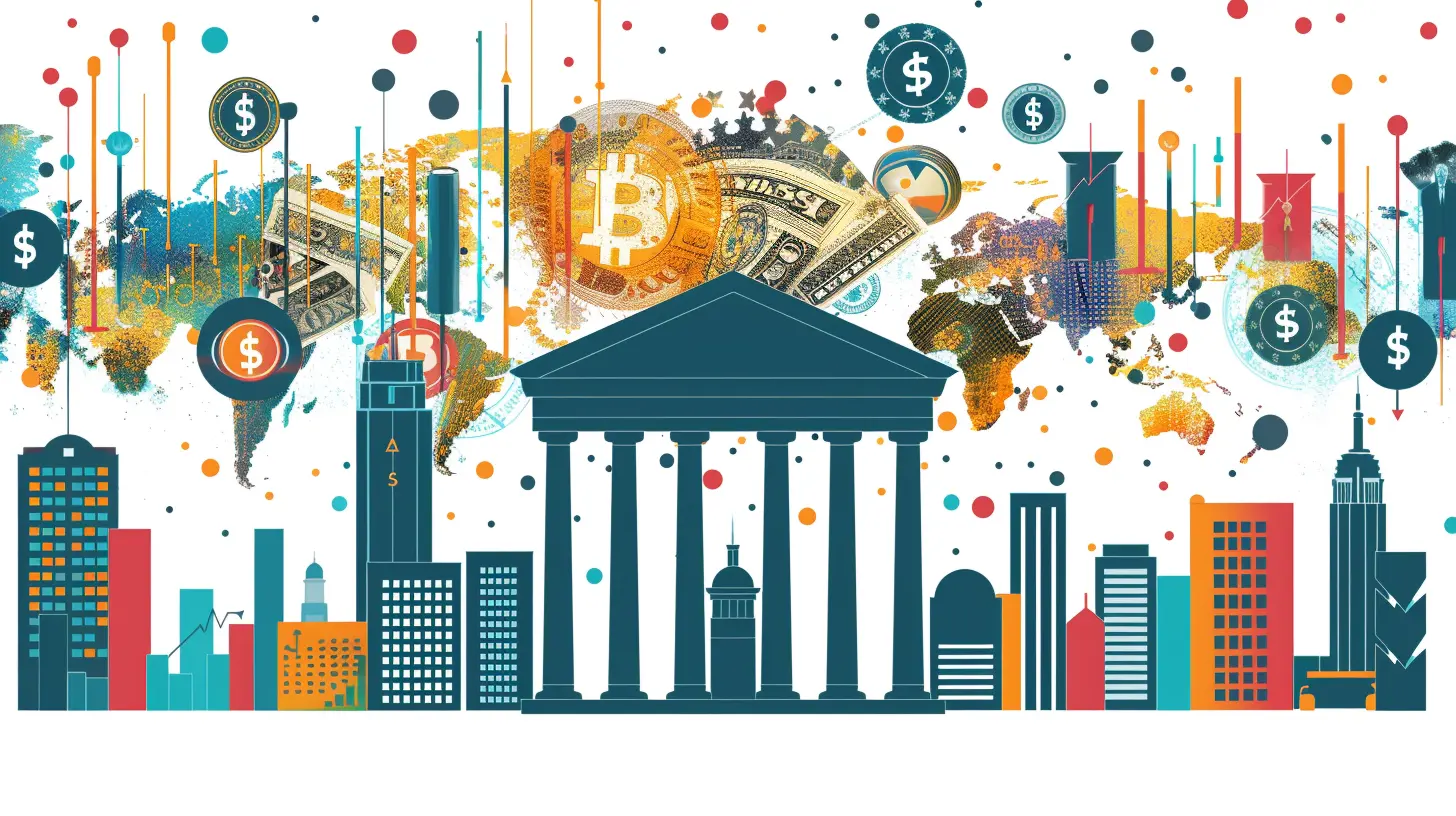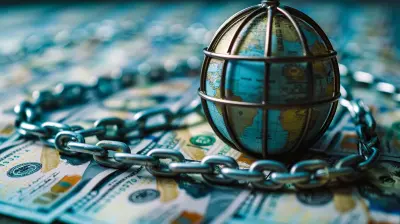The Effect of Interest Rate Hikes on Consumer Spending
4 May 2025
Interest rates. They’re one of those financial terms you hear all the time, but unless you're deep into economics, you might not fully grasp just how much they impact your daily life. Yet, they do—especially when they start climbing.
When the Federal Reserve (or any central bank) decides to raise interest rates, it sends ripples through the economy. Businesses, investors, and, most importantly, everyday consumers feel the effects. But how exactly do higher interest rates change the way people spend their money?
In this article, we’ll break it down in simple terms, exploring how interest rate hikes affect consumer spending—because let’s be honest, this is something that impacts all of us. 
What Are Interest Rate Hikes?
Before we dive into the nitty-gritty, let’s quickly go over what an interest rate hike actually is.Central banks, like the Federal Reserve in the U.S., set a benchmark interest rate that influences borrowing costs across the economy. When inflation gets too high, central banks often raise interest rates to cool things down.
This makes borrowing money more expensive, meaning higher mortgage rates, pricier car loans, and increased credit card interest rates. If borrowing money costs more, people tend to spend less. Simple, right? Well, there’s a bit more to it—let’s dig in. 
How Interest Rate Hikes Affect Consumer Spending
Higher interest rates touch almost every part of personal finance. From housing to credit cards to everyday purchases, here’s how they influence spending habits.1. Higher Loan Costs = Less Borrowing
When interest rates rise, borrowing money becomes more expensive. That dream home? The monthly mortgage payment just went up. That new car? The loan now has a higher interest rate, making it pricier.In response, people either:
- Delay big purchases (like homes and cars)
- Reduce spending on non-essential items
- Focus more on saving rather than borrowing
This cooling off in consumer spending can slow down economic growth—but it’s exactly what central banks aim for when trying to control inflation.
2. Credit Card Debt Becomes Costlier
If you carry a balance on your credit card, you’ll definitely feel the pinch when interest rates rise. Credit card interest rates are typically tied to the prime rate, which tracks changes in the Federal Reserve’s benchmark interest rate.So as rates go up, the cost of carrying credit card debt increases, forcing people to either:
- Pay off balances faster (if they can)
- Cut back on non-essential purchases
- Shift toward cheaper alternatives
All of this leads to lower consumer spending, which helps slow inflation.
3. Mortgage Rates and the Housing Market
One of the biggest areas affected by interest rate hikes is the housing market. If you were planning to buy a home, higher mortgage rates mean higher monthly payments. That’s enough to make many people reconsider their purchase or settle for a smaller home.For current homeowners, rising rates can also discourage refinancing, keeping them locked into their existing mortgages. This slowdown in home buying and refinancing can cool down the housing market significantly. 
Why Do Central Banks Raise Interest Rates?
Okay, so we know that higher interest rates lead to less borrowing and spending. But why do central banks actually do this?The main reason: inflation control.
When inflation gets too high, everyday goods and services become more expensive. If left unchecked, it can spiral out of control, making essentials unaffordable for many people.
By raising interest rates, central banks make borrowing more expensive, reducing spending and slowing down inflation. It’s like pressing the brakes on an overheated economy. 
How Do Consumers Adapt to Higher Interest Rates?
When interest rates climb, people don’t just stop spending entirely—they adjust. Here’s how:1. Cutting Back on Non-Essentials
Dining out? Maybe not as often. That new iPhone? It can wait. People tend to prioritize necessities over luxuries when money gets tighter.2. Switching to More Affordable Alternatives
Instead of luxury brands, consumers might opt for budget-friendly options. A high-end vacation might turn into a road trip. Little shifts like these help households balance their budgets when money is tighter.3. Increasing Savings
For those who have some extra cash, higher interest rates actually provide a silver lining—savings accounts and fixed deposits start offering better returns. So, rather than spending, people might stash more money away for the future.The Silver Lining: Interest Rate Hikes Aren’t All Bad
Okay, so rising interest rates make borrowing more expensive, but there are upsides, too! Let’s take a look at some of the benefits:1. Higher Savings Returns
If you have money in a savings account, you’ll likely see better interest rates, meaning your savings grow faster over time.2. Slower Inflation
Since interest rate hikes cool down spending, they help keep inflation in check, making everyday goods and services more affordable in the long run.3. Stronger Currency Value
Higher interest rates can attract foreign investment, strengthening the country’s currency and making imported goods cheaper.So while it may feel painful in the short term, these hikes can actually create long-term stability in the economy.
What Should You Do When Interest Rates Rise?
Rising interest rates aren’t something you can control, but you can certainly prepare. Here are some tips to stay financially healthy:- Pay off high-interest debt – Credit cards and other variable-rate debts can become real burdens when rates rise. Focus on clearing them as quickly as possible.
- Avoid unnecessary loans – If you don’t need to borrow right now, hold off. Wait until rates stabilize.
- Boost your savings – Take advantage of higher interest rates by increasing your savings in high-yield accounts.
- Create a budget – Cut back on unnecessary expenses and ensure you’re financially prepared for any economic shifts.
By staying proactive, you can protect your finances even when interest rates climb.
Final Thoughts
Interest rate hikes can feel like a financial curveball, but understanding their impact on consumer spending helps you make smarter money moves. While borrowing gets costlier and spending slows down, strategic financial decisions can help you weather the storm.So, whether it’s cutting back on spending, paying off debt, or taking advantage of better savings rates, being prepared can make all the difference. At the end of the day, staying informed and financially savvy is the best way to ride out any economic changes.
What are your thoughts on rising interest rates? Have they changed your spending habits? Let’s talk about it in the comments!
all images in this post were generated using AI tools
Category:
Interest Rates ImpactAuthor:

Yasmin McGee
Discussion
rate this article
3 comments
Jordan McDermott
Interest rates up, wallets down—what a dance!
June 19, 2025 at 4:51 AM

Yasmin McGee
Thank you for your comment! It's certainly a challenging rhythm for consumers as they adjust to rising rates.
Isla Collins
This article offers intriguing insights into how interest rate hikes shape consumer behavior. I'm curious to see how these changes impact spending patterns in real time!
May 23, 2025 at 4:10 AM

Yasmin McGee
Thank you for your interest! It will be fascinating to observe these patterns as they unfold in real time.
Axel McIntyre
Great article! It's important to understand how interest rate hikes impact consumer spending. Your insights provide valuable perspectives for navigating these changes. Empowering consumers to make informed decisions will always lead to better financial outcomes. Keep up the great work!
May 9, 2025 at 2:35 AM

Yasmin McGee
Thank you for your kind words! I'm glad you found the insights valuable. Understanding these dynamics is crucial for navigating our financial landscape.



